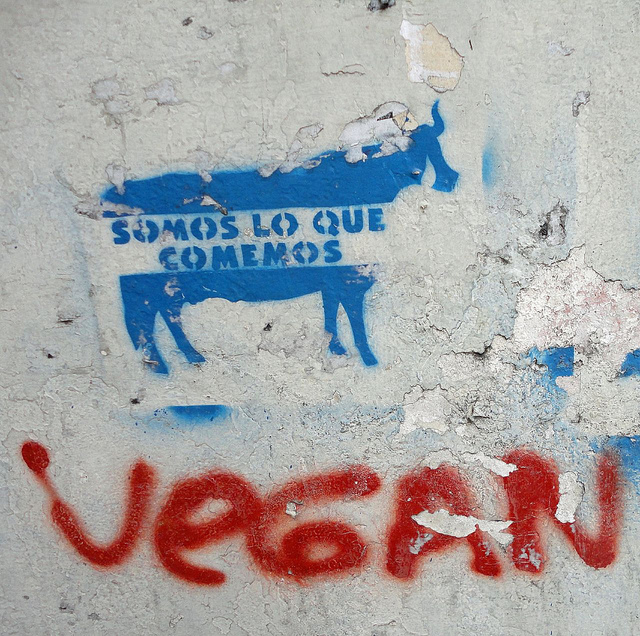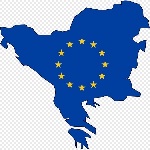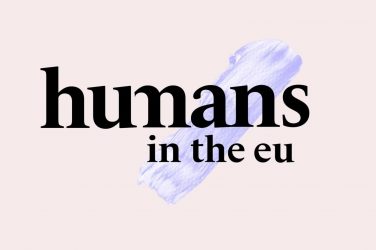With increasing climate marches and strikes taking place across the world, more people are beginning to consider how to live a more sustainable and environmentally conscious life. Environmental advocate and writer Ana Christina Gaeta explores why the best way forward is to ditch the dietary category labels. Here’s why:
What is your label?
As a dedicated and passionate food and health advocate, I am often asked to define my eating habits by choosing which of the four dietary categories I belong to – vegan, vegetarian, pescatarian, or carnivore (omnivore)? The answer is: none!
Since I have started to advocate more publicly about the environmental and health benefits of a plant-based diet and the simultaneous detrimental impacts of the animal industry, I was confronted by the limitations posed by the popular food lexicon. Dietary labels are very popular because they help us classify individuals’ food preferences by a single and very efficient word. Yet, these terms can actually mean a lot of different things. They can refer to a principle, a practice, a philosophy, a movement or a trend, and they do not necessarily mean all of them at the same time.
For example, denominating myself a “pescatarian” would suggest by definition that I do not eat meat but I do eat seafood. While this is in fact correct, the term does not fully translate the nuances and complexity of my food-philosophy and practice.
Having grown up in a small fishing town in northern Mexico where locally and sustainably sourced seafood is accessible to all, has certainly raised my seafood standards. I place the most value on the opportunity to eat locally sourced shrimp more than the experience of eating just any shrimp. I find no pleasure in eating a seafood pasta or Pad-Thai made with frozen shrimps that were caught with trawlers and then shipped across the world. Shrimps like these are the ones served at low and mid-range restaurants and, for this reason, I actually rarely ever eat seafood – unless I am somewhere where I know it is as fresh and sustainable as it is back home.
Due to my very particular decision-making process when it comes to fish-eating habits, being called a “pescatarian” doesn’t suit me well. In fact, I have become increasingly uncomfortable with using the term because I know how it fails to actually communicate my food choices.
Living up to the label
At the same time, I also feel uncomfortable calling myself a “vegetarian,” even if it is the closest thing to the reality. My discomfort with bearing the title is due to the minimal 5% of the time that I do eat seafood.
Food movements seem to be louder than ever before, as well as more intolerant to indiscipline. Advocates of specific diets often have rigid expectations of those who choose to bare their title.
Today, with clear and solid data demonstrating how the rate of global meat consumption and industrialised fishing is having detrimental impacts on the environment, more than ever our food choices are under scrutiny. Food movements seem to be louder than ever before, as well as more intolerant to indiscipline. Advocates of specific diets often have rigid expectations of those who choose to bare their title.
For example, the intolerant discourse that exists between the two dietary extremes: vegans vs. carnivores. Many vegan advocates are passionate about defending animal welfare, while passionate meat-eaters believe human beings are meant to eat animals. The profound disparity in perceptions of these two groups seem to bear such a strong contrast that it eliminates any possibility of a middle ground. Either you defend animals, or you eat them.
However, considering that the problems of the food system exist on a global scale, I do not believe the problems and solutions to be as black and white as choosing to be vegan or carnivore.

In my efforts to advocate for a plant-based diet, I have faced resistance and scrutiny from people of all dietary groups (from vegan and carnivores alike) because I may not meet the vegan standard 100% of the time. Apparently if one does not religiously comply with the standard, we lose the community’s approval to advocate their message. Aware that advocating for something you may not comply with is deemed hypocritical, I believe this judgement is facilitated by the expectations that are attached to the different labels.
I am not vegan (and I do not claim to be), yet I do avidly advocate for a transition to a plant-based lifestyle, even if not achieved 100% of the time. We must be pragmatic and understand that for meat eaters, abandoning meat all at once is drastic, unappealing and unrealistic. Therefore, rather than divide the movements of vegans vs. carnivores, I propose that by paying greater attention to where and how our food is produced, a reduction in animal consumption becomes inherent.
While I personally do not support the consumption of animals, I think we must be realistic about the fact that humanity will probably never abandon meat and therefore, advocate for a significant reduction. By focusing the discourse around a greater consumption of plants rather than on abandoning meat, the mission becomes inclusive, accessible, and label free.
The realisation that the planet and human health cannot sustain the current rate of meat consumption is being recognized worldwide. To address this issue, a pragmatic and “softer” approach that caters to all diets has been trying to encourage the reduction of meat through the promotion of vegetables. To understand the idea, we did what humans do best – put a label on it.
Therefore, rather than divide the movements of vegans vs. carnivores, I propose that by paying greater attention to where and how our food is produced, a reduction in animal consumption becomes inherent.
The world goes flexitarian
The term “Flexitarian” was popularised relatively recently. This diet is a kind of “casual” vegetarian diet. It is mostly plant-based yet still allows the occasional consumption of meat. Many countries around the world have updated their food pyramids in recent years to recommend a flexitarian diet as the one that will lead to optimum health. For example, the Belgian pyramid recommends to “Drink mostly water. Eat mostly plant-based foods, including fruit, vegetables, legumes, beans and healthy fats like olive oil and nuts and a smaller serving of fish, dairy and cheese…also advises eating less butter and red meat.” The Netherlands went even further to specifically recommend limiting meat consumption to no more than two servings per week, and no more than one serving of fish per week in efforts to improve sustainability.
The international nonprofit EAT, in partnership with the Lancet Commission have recently released a groundbreaking report that seeks to describe the “optimum diet for people and the planet.” 37 of the world’s experts on food system, nutrition, environmental science, sustainability and health worked together to propose scientific targets to achieving what they are describing as the “Planetary Health Diet.” Along the lines of the flexitarian diet, it calls for eating mostly vegetables, fruits, legumes and nuts, and less meat, fish and diaries.
The common fight
Despite all the buzz around these new catchy terms, familiarity with the benefits of a “flexitarian” and “planetary health” diets are only accessible to the foodie and environmentalist bubbles. Such terms describe a philosophy and a science, but they sound too pretentious to become an inclusive practice that will merge all people who are currently divided by their dietary labels.
When it comes to food and diet, to me it is evident that not everything is clearer when described in categories. Labels also exclude individuals who are starting to learn about the true impact of their food choices and who are open to experiment with their diet. This very large group of rooky foodies are thus “unclassified” and often intimidated by the expectations set forth by the movements. Most people don’t like being classified, since bearing a label automatically attaches the reputation of the entire movement to your identity.
For the sake of inclusion and encouraging change, I believe that we, food advocates with a clear mission and concrete food-principles need to be more tolerant, avoid scrutiny of other’s choices, and above all, avoid the labels.

The food system needs a lot of fixing and every kind of consumer is absolutely integral to the cause. We cannot risk alienating entire groups of people because we disagree with their present-day food choices. Apart from individuals with specific health needs, the large majority that choose to opt out of meat consumption do so for a combination of environmental, health, and moral reasons. Even many carnivores who value organic animal agriculture have their own environmental and moral mission. Therefore, any effort dedicated to “better” food choices are contributing to the same ultimate goal. By focusing more on the specific problems and solutions, we focus on the similarities that unite us rather than on the elements that divide us.
Whether one is vegan, vegetarian, pescatarian, flexitarian or anything in between, part time of all the time, I think we need to worry less about all the name calling and rather talk about what we all want: ethical, fair, clean and sustainable food systems.
Cover Photo by Anna Pelzer on Unsplash










